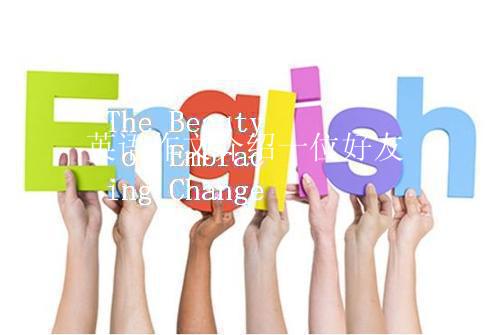Passage 1
学生上大学的目的各不相同:探索知识,充实自己;改变自身处境,谋求好的社会地位;满足父母的期望…还有人从未认真想过…
The Purpose of School
Have you ever asked yourself why children go to school? You will probably say that they go to learn their own language and other languages, arithmetic, geography, geometry, history, science and all the other subjects. That is quite true, but why do they learn these things? And are these things all that they learn at school?
We send our children to school to prepare them for the time when they will be big and will have to work for themselves. They learn their own language so that they will be able to tell others clearly what they want and what they know, and understand what others tell them. They learn foreign languages in order to be able to benefit from what people in other countries have written and said, and in order to make people from other countries understand what they themselves mean. They learn arithmetic in order to be able to measure and count things in their daily life, geography in order to know something about the world around them, and history to know something about human beings they meet every day. Nearly everything they study at school has some practical use in their life, but is that the only reason why they go to school?
No. There is more in education than just learning facts. We go to school, above all①, to learn how to learn, so that, when we have left school, we can continue to learn. A man who really knows how to learn will always be successful, because whenever he has to do something new which he has never had to do before, he will rapidly teach himself how to do it in the best way. The uneducated person, on the other hand②, is either unable to do something new, or does it badly.The purpose of schools, therefore, is not just to teach languages, arithmetic, geography, etc., but teach pupils the way to learn.
[330 words]
全文结构清晰、脉络分明。开篇点题,提出问题:为什么要上学。第二段阐述观点,指出学习每一门课程的目的,接着作者笔锋一转,用一个but提出质疑:上学的惟一理由就是把学校里学的一切在现实中应用吗?在第三段作者针对这个问题提出观点,即上学的真正目的就是学会如何学习。
本文细致地分析了接受学校教育的目的。文章虽短,但层层深入,说理透彻,发人深思。
上学的目的
你是否问过自己为什么孩子要上学?你可能会说他们上学是去学习母语和其他语言,去学习数学、地理、几何、历史、科学及其他学科。此话不假,但他们为什么要学这些?这些东西是他们在校学习的全部内容吗?
我们送孩子上学是为了让他们为自己长大后的工作做准备。学习母语是为了让他们能够明确地告诉别人自己想要什么和知道什么,并能理解别人的话。学习外语是为了从外国人的著作和言语中获益并让外国人了解自己说话的含义。学数学是为了日常计量和算数,学习地理是为了了解周围的世界,学习历史是为了了解人类,因为他们每天都会与之打交道。在学校里学的一切在他们的日常生活中都有实际应用,但这就是他们上学的惟一理由吗?
当然不是。教育不仅仅是学习事实。首先,我们上学是为了学会如何学习,这样,当我们离开学校时,我们就能继续学习。一个会学习的人总会是一个有成就的人,因为不管他何时需要做以前从未做过的事的时候,他都能很快地自己学会以最好的办法来做。相反地,一个未受过教育的人不是无法做好新事情,就是做得很糟。因此,学校存在的目的不仅仅是教授语言、数学、地理等知识,还要教给学生学习的方法。
arithmetic n.算术
geometry n.几何
prepare sb. for sth. 让某人为某事做好准备
①【注释】above all 最重要的;尤其
【临摹】He longs above all to see his family again.他尤其渴望再见到家里人。
②【注释】on the other hand 另一方面
【临摹】I want to go to the party, but on the other hand I ought to be studying. 我想去参加聚会,但从另一方面来说,我应该留下来学习。佳句临摹
Art is long, but life is short. 人生有涯,而学无涯。
What is learned in the cradle is carried to the grave. 儿时所学,终生难忘。
Passage 2
不同的人有不同的读书目的。作者通过这篇文章给读者传递了这样一个信息:读书不应该仅仅是为了通过考试、获取信息,而是应该让自己感到心情愉悦,活得更充实。
Reading for Pleasure
The first thing I want to insist on is that reading should be enjoyable. Of course, there are many books that we all have to read, either to pass examinations or to acquire information, from which it is impossible to extract enjoyment. We are reading them for instruction, and the best we can hope is that our need for it will enable us to get through them without tedium. Such books we read with resignation rather than with alacrity. But that is not the sort of reading I have in mind. The books I shall mention in due course will help you neither to get a deGREe nor to earn your living, they will not teach you to sail a boat or get a stalled motor to run, but they will help you to live more fully. That, however, they cannot do unless you enjoy reading them.
Every man is his own best critic. Whatever the learned say about a book, however unanimous they are in their praise of it, unless it interests you, it is no business of yours①. And you who read are the final judge of the value to you of the book you are reading. We are none of us exactly like everyone else, only rather like, and it would be unreasonable to suppose that the books that have meant a GREat deal to me should be precisely those that will mean a great deal to you. But there are books that I feel the richer for having read, and I think I should not be quite the man I am if I had not read them. No one is under an obligation to read poetry or fiction or the miscellaneous literature which is classed as belleslettres②. He must read them for pleasure,and who can claim that what pleases one man must necessarily please another?







文档为doc格式

 本文地址:
本文地址: 

